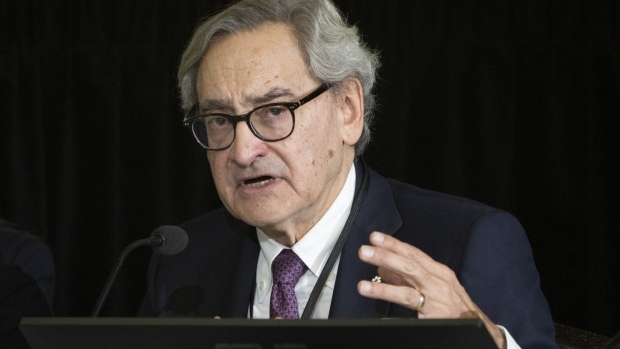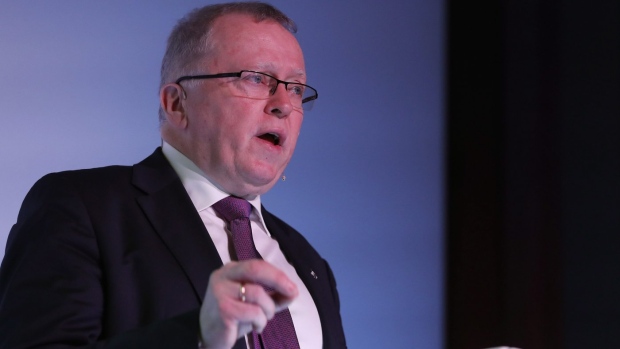CRYPTO CRIMINAL CAPITALI$M
Binance discloses investigation by Canadian securities regulator
, Bloomberg News
Crypto exchange Binance Holdings Ltd. said it has received an order from one of Canada’s securities regulators to investigate whether the platform attempted to find a way around local regulations and compliance controls while seeking approvals in the country.
The Ontario Securities Commission served the world’s largest digital asset exchange with an investigation order on May 10, the platform said in a filing this month with the Capital Markets Tribunal. Two days later, Binance announced it would be withdrawing from the market, citing new regulatory guidance related to stablecoins and investor limits.
The OSC’s order authorized “an extremely broad inquiry into whether Binance may have taken steps to circumvent Ontario securities law and compliance controls in relation to Binance.com or engaged in conduct contrary to Ontario securities law and/or the public interest,” Binance’s legal representation Borden Ladner Gervais LLP said in the filing.
Binance has faced increasing regulatory and legal scrutiny in multiple jurisdictions over the last few years, most recently finding itself and its Chief Executive Officer Changpeng Zhao on the receiving end of a lawsuit by the U.S. Commodity Futures Trading Commission. While the details of the order were not immediately publicly available, Binance said the OSC had relied on the CFTC’s lawsuit as its impetus.
When asked why Binance had opted to leave the Canadian market, Zhao, who is a Canadian citizen, said in a Twitter Space on Wednesday that he no longer believed it was possible to operate a “viable business” there from a costs perspective after the new regulations were enforced.
The OSC has since sent summons to Binance to supply documents for the investigation, which Binance argued earlier this month that it could not comply with as the summons was not specific enough on what was required. The Capital Markets Tribunal ordered Binance to comply with the summons at a May 26 hearing, according to a filing published on Monday.
“The OSC has made a request to access virtually limitless private data in the hope they may find something untoward,” a Binance spokesperson said in an email on Wednesday, adding that it viewed the order as “ungrounded.” A spokesperson for the OSC said the regulator will address the application later this week, without confirming whether Binance had complied with the summons as requested.
Canada’s move to impose toughened rules on crypto companies in the wake of trading platform FTX’s collapse last year has caused several major exchanges to withdraw from the market, including OKX and Bybit. Others, such as Coinbase Global Inc., have opted to stay in the country and pursue registration under the new rules.
Binance had separately argued that the OSC’s investigation order should be revoked because of a settlement agreement that the two signed in 2022 relating to its activities in the country, the filings showed. The agreement promised that the OSC would not bring further investigations against Binance while it was seeking registration, the exchange said.
In its decision on the case last week, the Capital Markets Tribunal said Binance must publicly declare the nature and content of the investigation order and what information it had been summoned to provide.
A further hearing on the issue of jurisdiction will be held on June 2, the Tribunal said. Binance has steadily sought registration in multiple locations across the world over the last two years, including France, Japan and Dubai, without designating any site as its official headquarters. In the Canadian filings, Binance said it was incorporated and carries on business via a registered office located in George Town, Cayman Islands.






